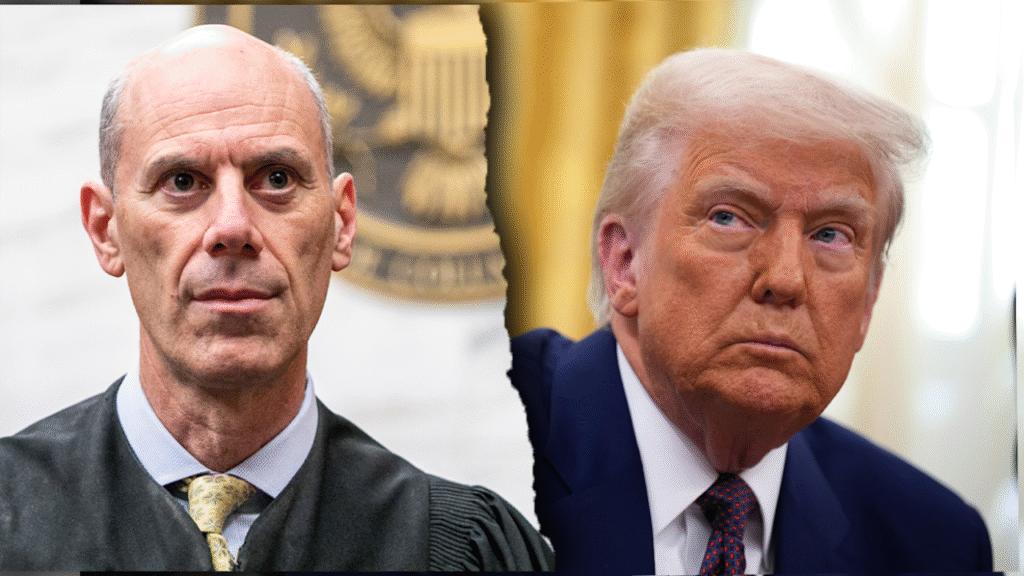In a tense courtroom exchange, U.S. District Judge James Boasberg sharply questioned the Department of Justice (DOJ) over the Trump administration’s handling of the deportation of Venezuelan migrants. The controversial deportations, conducted under the Alien Enemies Act of 1798, are at the heart of the case, sparking a heated legal battle over the balance between executive authority and judicial oversight.
Deportations Under the Alien Enemies Act
The case centers around the deportation of nearly 140 Venezuelan migrants, carried out under the rarely invoked Alien Enemies Act, a law typically used in wartime to expel foreign nationals deemed hostile to the U.S. These deportations, which sent the migrants to El Salvador, have drawn sharp criticism. Civil rights organizations, including the American Civil Liberties Union (ACLU), argue that the deportees were denied due process, and the U.S. government still holds “constructive custody” over them, which could allow their return for legal proceedings.
Trump’s Controversial Remarks
During the hearing, Judge Boasberg focused on remarks made by President Trump, who suggested he could retrieve a deported individual, Kilmar Abrego Garcia, from El Salvador with a simple phone call. The statement seemed to contradict the administration’s official stance, which asserts that once individuals are deported, the U.S. no longer holds control over them.
DOJ attorney Abhishek Kambli defended the government’s position, arguing that presidential influence does not equate to legal authority. However, Boasberg raised concerns about the potential misuse of executive power in this context, questioning whether Trump’s comments undermined legal procedures.
State Secrets and National Security Concerns
Another key issue in the case is the Trump administration’s use of the state secrets privilege, which allows the government to withhold information that could compromise national security. The DOJ has invoked this privilege to keep details of the deportation flights and a reported $20 million deal with El Salvador’s President Nayib Bukele from being made public.
Critics argue that the administration is using the state secrets privilege to avoid judicial scrutiny. Boasberg expressed skepticism about the use of this privilege, pointing out that judges often review classified information in secure settings. The administration’s reluctance to disclose such details has raised concerns about transparency and accountability.
Gitmo Proposal
In a surprising move, Judge Boasberg suggested relocating the deported migrants to the Guantánamo Bay detention facility, commonly known as Gitmo, to ensure they have access to legal proceedings. The proposal was part of a broader effort to address concerns over due process. Although controversial, the suggestion highlights the judge’s frustration with the lack of clarity in the case and the legal obstacles in ensuring the deportees’ rights are upheld.
While Gitmo is primarily known for housing detainees linked to terrorism, its use in this context would mark a significant departure from typical immigration practices and has raised significant legal and ethical questions.
Political Reactions
The case has sparked political controversy, with President Trump calling for Boasberg’s impeachment. This fits into a larger pattern of tension between the Trump administration and the judiciary, particularly in cases involving immigration policy. In response, Chief Justice John Roberts issued a rare public defense of the judiciary, reaffirming the importance of an independent judicial branch.
Conclusion
Judge Boasberg’s questioning of the DOJ and his surprising Gitmo suggestion reflect ongoing concerns about the balance of power between the executive branch and the courts. The case underscores the complex and often controversial nature of U.S. immigration policy, with legal challenges highlighting the importance of transparency and due process. As the case progresses, it will likely remain a focal point in the debate over executive power and the rights of immigrants in the U.S.









